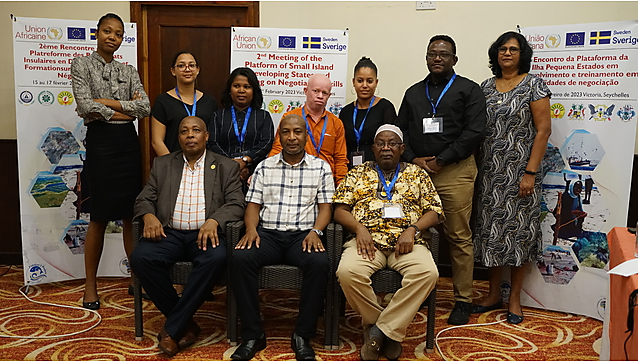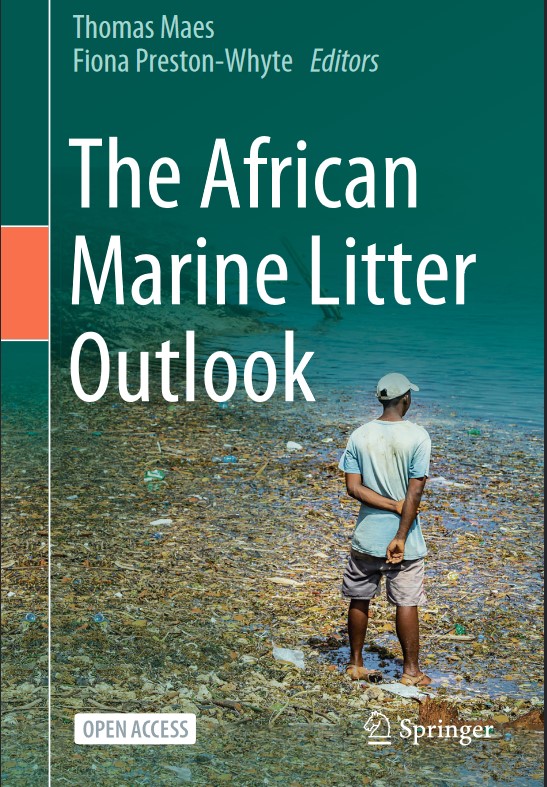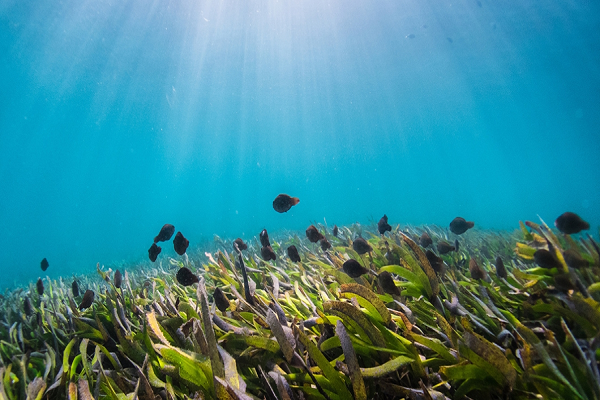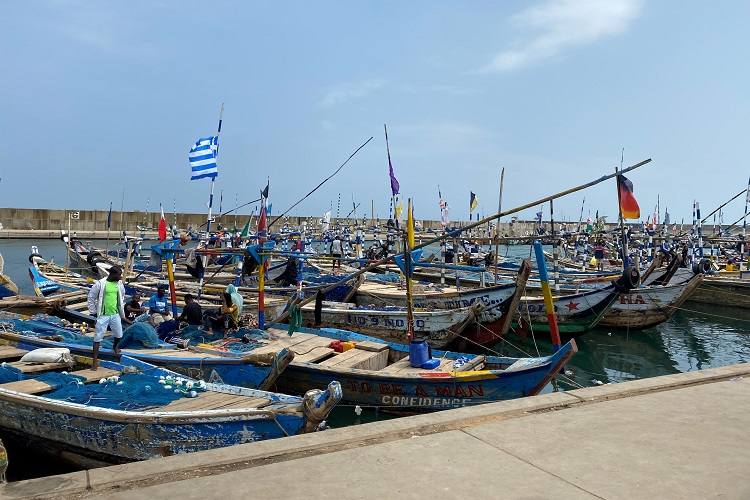
African Union-Inter African Bureau for Animal Resources (AU-IBAR) in collaboration with African Union Development Agency (AUDA-NEPAD) through the EU-funded phase two of the Fisheries Governance Project (Fish Gov 2) and SIDA-funded Conserving Aquatic Biodiversity Project organised a 2nd meeting of a platform of Small Island Developing States (SIDS) and training workshop on negotiation skills.
Continue Reading
There has been an acknowledged need for capacity building of African Union Member States as an accepted development theory in decision-making and participation in International Ocean negotiations. AU-IBAR and AUDA-NEPAD jointly organised the second meeting of the Small Island Developing States (SIDS) Platform and training in negotiating skills in Seychelles from 15 to 17 February, 2023 in response to the need for improved negotiating skills and participant recommendations from the last SIDS meeting held in August, 2022.
Continue Reading
(the African Union Inter-African Bureau for Animal Resources (AU-IBAR) is currently implementing the second phase of the Fisheries Governance Project (FishGov2) which aims to enhance the contribution of its member states towards sustainable fisheries and aquaculture in order to achieve its objectives set out in the AU Agenda 2063. The projects are funded by the European Union (EU) and the Swedish International Development Cooperation Agency (SIDA) respectively.
Continue Reading
 The African Marine Litter Outlook provides a detailed overview of marine litter from the African perspective. Written by experts based in Africa and from around the world, it is an authoritative work founded upon the most up-to-date science. While containing detailed scientific information, this book provides a sound knowledge base for policy-makers, NGOs and the broader public. Access document attached.
The African Marine Litter Outlook provides a detailed overview of marine litter from the African perspective. Written by experts based in Africa and from around the world, it is an authoritative work founded upon the most up-to-date science. While containing detailed scientific information, this book provides a sound knowledge base for policy-makers, NGOs and the broader public. Access document attached.
View Full Post and Comments

By Patrick Karani 1, Pierre Failler 2, *, Asmerom Mengisteab Gilau 3,
Martin Ndende 4, Serigne Thiam Diop
The purpose of this article is to map-out African Union Member Countries and Regional Economic Communities engaged in Blue Economy. This engagement would provide some directed actions on how Blue Economy is contributing to achieving Sustainable Development in Africa. Download Document below, or access via the Journal of Sustainabke Development
View Full Post and Comments

This report is a result of SwAM Ocean, an international development cooperation programme being operated by the Swedish Agency for Marine and Water Management (SwAM). SwAM Ocean aims to contribute to poverty reduction through sustainable use of aquatic resources. To reach this goal we need a good understanding of the premises for enabling long-term blue growth in coastal communities. This report is part of a four-part series of studies of the topic.
As part of SwAM Ocean, four studies exploring the conditions for lifting coastal communities out of poverty are being conducted. These four studies investigate institutional and infrastructure factors affecting blue growth and social development at local level in developing countries.
View Full Post and Comments

A dialogue meeting was held between the African Union InterAfrican Bureau for Animal Resources (AU-IBAR), the AUDA-NEPAD Planning and Coordinating Agency (NPCA), and the Regional Economic Communities from 28th November, 2021 to 1st December, 2021.
The three leading implementers of the Fisheries Governance 2 Project met to develop and establish a mechanism for regular dialogue on emerging issues of the Fisheries Governance project phase two (FishGov2) Project and sensitize the RECs on their potential role in the project. The meeting under the support from the European Union was attended by twenty-two participants, who included AU-IBAR and AUDI-NEPAD staff, two representatives from six RECs; namely: ECOWAS, UMA, EAC, COMESA, ECCAS, and SADC.
Continue Reading

Attempts to curb illegal fishing in African waters while turning a blind eye to large fishing fleets which are most damaging to fish stocks are putting small-scale fisheries at risk, according to new research from the University of St Andrews.
The research, published in Marine Policy, found that fishing restrictions and the advancement of fishing arrangements with Distant Water Fishing Nations (DWFNs) are causing small-scale fisheries to struggle financially despite being best placed to support local economies and food needs. Read more
View Full Post and Comments
A virtual stakeholder consultative workshop on operationalizing the revised AFRM was organized by the African Union-InterAfrican Bureau for Animal Resources (AU-IBAR) in collaboration with the Africa Union Development Agency (AUDA)-NEPAD on the 11-12 August 2021.
View Full Post and Comments






